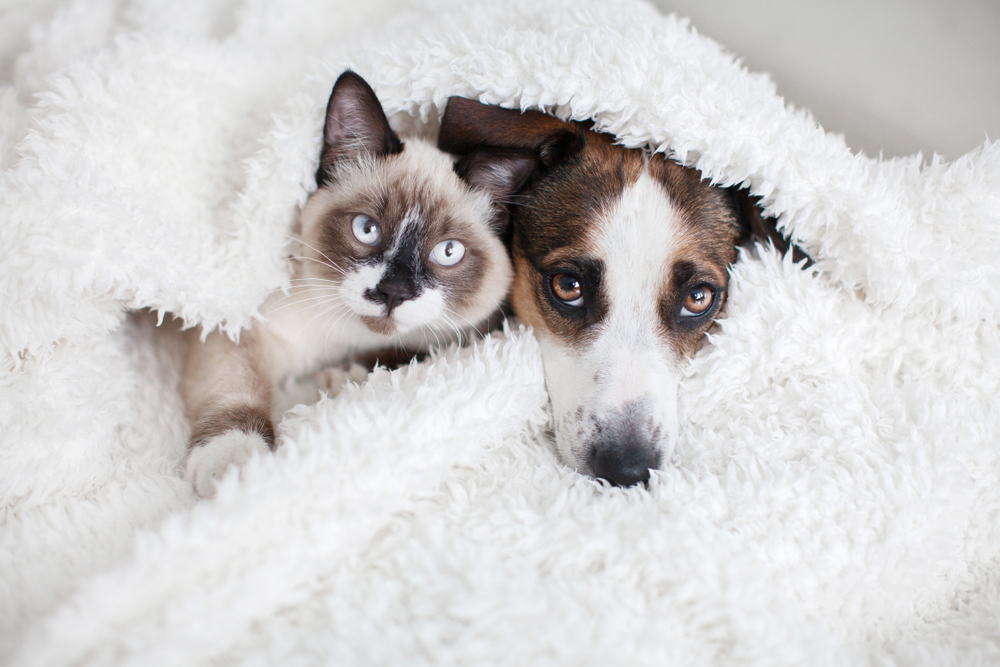The phrase “winter wonderland” exists for a reason. The holidays and the winter weather can make it feel like a magical time of year. With all the many perks of the season, it is important to remember that it can be a dangerous time for animals. Here are some of the biggest winter pet dangers to look out for and tips on keeping them safe.
Winter Pet Dangers: Cold Temperatures
Since dogs and cats have built-in fur coats, it can be hard to remember that the cold affects them too. Pets are susceptible to frostbite and hypothermia just like humans are. They cannot verbally tell us when they are too cold, however. As pet owners, we must be able to recognize the signs of cold-related danger. The following could indicate a severe reaction to the cold:
- Irregular heart beat (very fast followed by very slow)
- Rapid breathing followed by progressively slower breathing
- Lethargy
- Paleness
- Enlarged pupils
- Loss of consciousness
If your pet is experiencing any of these symptoms, it is important to get medical treatment as soon as possible.
Keeping Your Pets Warm
If you feel cold outside, your pets are also cold. You might want to invest in a jacket for your pet if you spend a lot of time together outside. You can also outfit them with booties to protect their feet from snow and salt. If the temperature drops down to extreme levels, try to limit the amount of time your animals spend outside.
Winter Pet Dangers: Antifreeze
Antifreeze helps humans remain mobile on the coldest days, but it poses a huge threat to our pets. Antifreeze toxicity can cause kidney damage in animals. Dogs and cats are often attracted to its sweet smell. If they ingest it, however, it could lead to fatal side effects. Be sure to safely secure antifreeze behind closed doors where your pets cannot reach it. Whenever you use antifreeze, make sure you promptly clean up any spills. If you suspect your pet has ingested antifreeze, you should get them immediate medical attention.
Winter Pet Dangers: Weight Gain
Since we tend to spend less time outside in winter, it is not unusual to put on a little weight during this time of year. For humans, we can spend a little extra time in the gym to try to reverse the effects of a less active winter. Weight gain for pets can be really dangerous for their health, however. Pet obesity puts them at a much higher risk for diabetes, cancer, and other diseases. It is also much harder for pets to lose weight, so even a few extra pounds can be really detrimental to health.
Helping Pets Maintain a Healthy Weight
Even if you do not spend as much time on walks or at the park during the winter, you can still help your pets keep a trim figure. Talk to your veterinarian about how much food they need during the winter. Spend some time doing some physical activities inside to keep them moving and healthy. Some fun ideas include:
- Fetch
- Agility training
- Hide and seek
Winter Pet Dangers: Boredom
Although boredom isn’t one of the physical winter pet dangers, it can affect your pet’s mental health. Pets need mental stimulation when they are stuck inside more. They can even get depressed. Incorporate extra cold weather activities or indoor activities and games.
The staff at Union Lake Veterinary Hospital loves animals as much as you do. We are here to help you keep your pets healthy through every stage (and season) of life. To learn more about our services or to schedule an appointment, please call (248) 363-1508.

